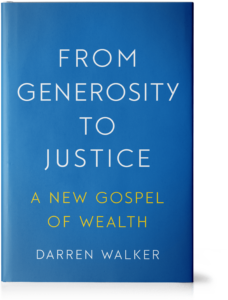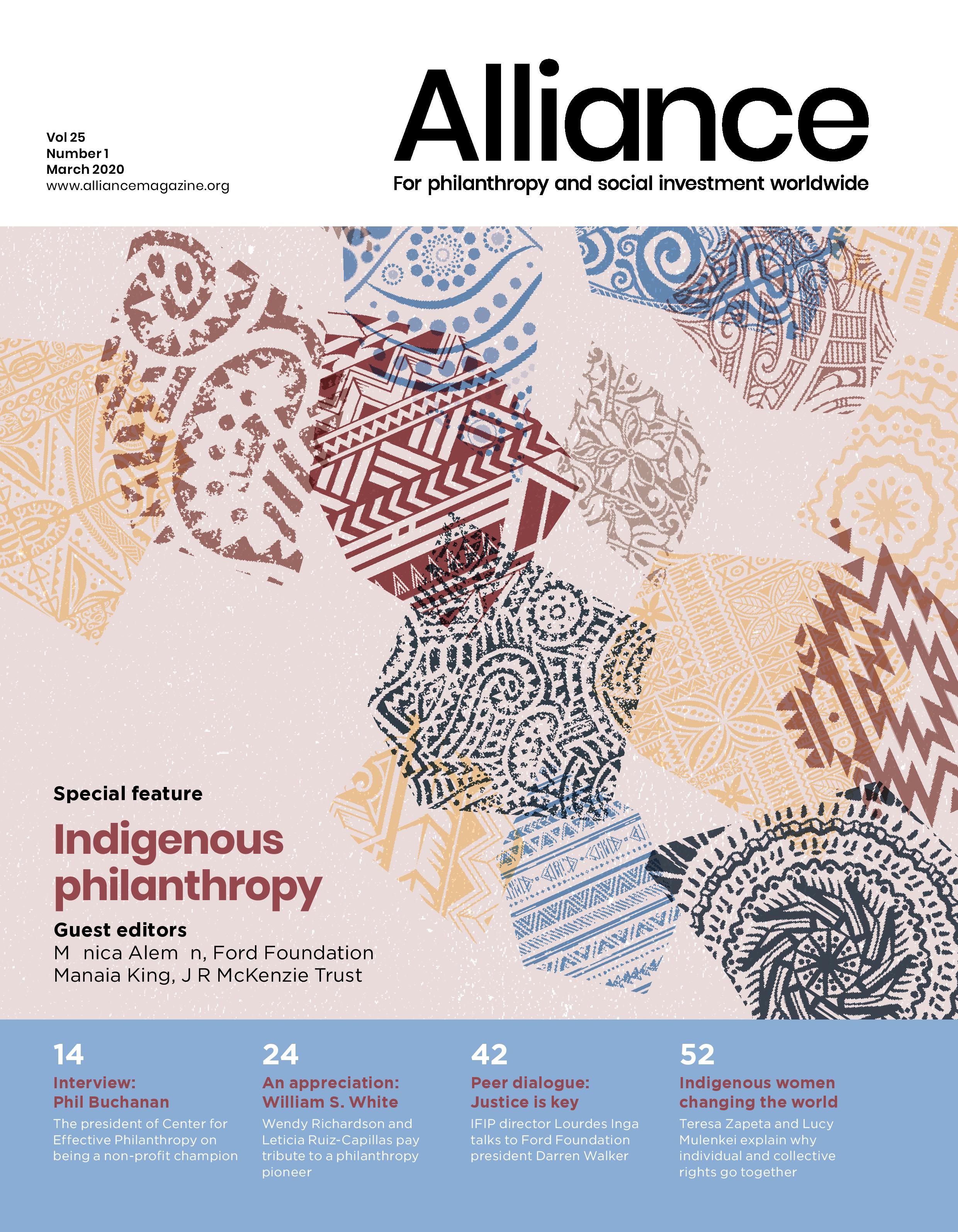 Reviewed by Tobias Jung, director of the Centre for the Study of Philanthropy & Public Good, University of St Andrews
Reviewed by Tobias Jung, director of the Centre for the Study of Philanthropy & Public Good, University of St Andrews
Published on the centenary of Andrew Carnegie’s death, Walker’s book proposes ‘A new gospel of wealth’. Developing some of his earlier ideas, Walker’s central concern is that ‘for all the good philanthropy has accomplished’, it needs reform. Few would disagree. His taking stock of US philanthropy is frank. His drawing attention to the prominence and potential of ‘privilege’ in philanthropy is as valid as his emphasis on, and encouragement to, take a more encompassing approach. I salute Walker for this; it is refreshing to see this coming from a senior figure within the US foundation world (Walker is the president of the Ford Foundation). Walker’s proposed solution to philanthropy’s predicament, however, that ‘as powerful as philanthropy has been, and as wonderful as generosity is, we have an even bigger obligation to deliver justice’, did not chime with me. The reason for that is threefold.
Firstly, I wondered whether Walker’s approach amounted to more than a rebranding of the concept of philanthropy under the label of justice. Philanthropy tends to be seen as the use of private resources – treasure, time, talent, ties – for public purposes. From at least the Enlightenment, philanthropy has tried to differentiate itself from charity. Charity is commonly cast as treating symptoms; philanthropy is considered to be directed towards addressing the root causes that lead to those symptoms in the first place. Walker uses this specific distinction as the basis for his argument but refers to ‘justice’ rather than philanthropy: he sees justice as ‘investing your money, time, resources, knowledge, and networks to change the root causes that create the need for charity in the first place’.
Secondly, I do agree with Walker that justice warrants discussion in philanthropy. Justice, however, is a mature area of debate. There exists a significant body of work. Even ‘social justice’ philanthropy has seen decades of discussions. Thus, I thought that any proposal to emphasise ‘justice’ in philanthropy might benefit from addressing such material and accompanying questions more explicitly: What justice, when, where, why and how? Justice by, for, through and with whom?
Thirdly, with contributors predominantly drawn from within the US, the book seems to follow a tradition that considers the US as the epicentre of philanthropy. This appeared to be a missed opportunity, particularly as claims such as foundations are ‘creature[s] of capitalism’ or that Carnegie ‘created a model for what we now call a public-private partnership’, can be easily challenged from within an extra millennium and a half or so of foundation history and philanthropy insights from European, Middle Eastern, Asian or African contexts.
While I would have welcomed more clarity and expansion on what Walker’s vision adds to current conceptualisations and discourse, the book does offer various opportunities to pause and ponder about philanthropy’s past, present and potential pathways and practices. Written in an easily accessible style, it might thus provide an additional avenue towards wider engagement with the field.
About the book:
Published by: Ford Foundation/Disruption Books
To order: Free to download from: http://www.fordfoundation.org



Comments (0)